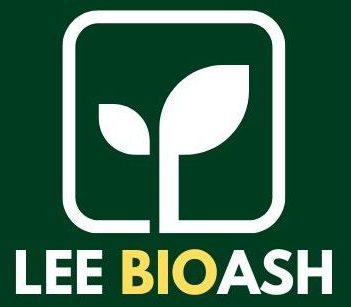BIOASH Malaysia – Sustainable Fertiliser Solution for Farmers
Introduction: Rising Fertiliser Costs in Agriculture
Fertiliser is one of the largest expenses in modern farming. Across Malaysia and many other agricultural regions, farmers are constantly searching for ways to reduce input costs without sacrificing yield or soil health. The rising price of chemical fertilisers, along with concerns about environmental impact, has pushed growers to look for sustainable alternatives.
One of the most promising solutions is BIOASH – a nutrient-rich ash derived from the controlled combustion of agricultural biomass such as empty fruit bunches (EFB) from oil palm plantations. At BIOASH Malaysia, we provide farmers with a cost-effective, eco-friendly fertiliser that not only improves crop growth but also promotes responsible recycling of biomass waste.
What is BIOASH?
Bioash is the ash produced from burning biomass materials such as empty fruit bunches and woodchips in boilers. Instead of letting this by-product go to waste, Bioash is collected, cooled, and applied directly to agricultural fields as a natural fertiliser.
Unlike chemical fertilisers, Bioash is not synthetically manufactured. It comes directly from agricultural by-products, making it a sustainable and renewable input for farmers. The nutrients in BIOASH are present in forms that are readily available to crops, ensuring efficient uptake and healthy plant growth.
Nutrient Value of BIOASH
One of the key advantages of BIOASH is its rich nutrient profile. Laboratory analysis shows that BIOASH contains:
-
Potassium (K₂O 15–19%) – a vital nutrient for plant growth, fruit development, and resistance against diseases. Potassium also improves water-use efficiency in crops, making plants more resilient during dry seasons.
-
Phosphorus (P₂O₅) – essential for root development and flowering. Phosphorus supports strong root systems, which in turn improves nutrient absorption and crop stability.
-
Calcium (CaO) – improves soil structure, reduces acidity, and helps with nutrient balance in the soil.
-
Magnesium (MgO) – a crucial component of chlorophyll, supporting photosynthesis and overall plant health.
-
Trace elements such as zinc, iron, and manganese – all of which play supporting roles in crop metabolism.
This combination of nutrients makes BIOASH comparable to, and in some cases even more beneficial than, conventional fertilisers like dolomite or chemical potash.
Lower Your Fertiliser Costs
One of the main reasons farmers choose BIOASH is its cost advantage. Chemical fertilisers such as MOP (Muriate of Potash) and TSP (Triple Superphosphate) are expensive, and prices fluctuate with global supply and demand. BIOASH, on the other hand, is produced locally from agricultural by-products, making it more affordable and less vulnerable to international price shocks.
By applying BIOASH, farmers can:
-
Reduce dependence on costly imported fertilisers.
-
Stretch their fertiliser budget while still providing sufficient nutrients to crops.
-
Achieve comparable yield performance without over-reliance on chemicals.
The end result is healthier soil, healthier crops, and healthier profits.
BIOASH and Organic Farming
Another important advantage of BIOASH is its compatibility with organic and sustainable farming systems. Wood ash and biomass ash are naturally occurring, and when sourced from clean, uncontaminated biomass (like empty fruit bunches and woodchips), they can be safely used in organic-certified farms.
For farmers transitioning to organic or adopting integrated nutrient management, BIOASH provides:
-
A natural source of potassium and phosphorus.
-
A way to improve soil pH in acidic soils.
-
A contribution to long-term soil fertility without relying solely on synthetic fertilisers.
This makes BIOASH not just a fertiliser alternative but a cornerstone of regenerative agriculture in Malaysia.
Environmental Benefits of BIOASH
Modern agriculture faces criticism for generating waste and contributing to environmental problems. By using BIOASH, farmers are directly supporting the recycling of biomass waste into useful fertiliser. This circular approach benefits both agriculture and the environment.
Key environmental benefits:
-
Recycling of agricultural residues – Empty fruit bunches and biomass that would otherwise be discarded are instead converted into useful fertiliser.
-
Reduction of landfill waste – BiIOASH keeps biomass out of landfills and open dumps, preventing pollution.
-
Lower carbon footprint – By reducing dependence on imported fertilisers, BIOASH helps lower transportation emissions.
-
Soil health improvement – BIOASH raises soil pH, reduces acidity, and improves overall soil structure.
By applying BIOASH, you are not only improving crop growth but also contributing to a more sustainable farming system.
BIOASH vs Dolomite
Many Malaysian farmers are familiar with dolomite as a soil amendment. While dolomite provides calcium and magnesium, it lacks significant amounts of potassium and phosphorus – two of the most critical nutrients for crop production.
Here’s how Bioash compares to dolomite:
| Feature | BIOASH | Dolomite |
|---|---|---|
| Potassium (K₂O) | 15–19% | Very low |
| Phosphorus (P₂O₅) | Present | Negligible |
| Calcium (CaO) | Present | High |
| Magnesium (MgO) | Present | High |
| Soil pH improvement | Yes | Yes |
| Cost-effectiveness | High (multi-nutrient value) | Medium (limited nutrients) |
| Sustainability | 100% recycled biomass | Mined mineral resource |
This shows that BIOASH offers a more balanced nutrient profile, making it a superior alternative to dolomite for many crops.
Crops That Benefit from BIOASH
BIOASH can be applied across a wide range of crops. Farmers in Malaysia and neighboring countries have seen positive results in:
-
Oil palm plantations – higher yields, stronger roots, and improved resistance to pests.
-
Rice fields – improved grain filling and higher yield.
-
Fruit orchards (durian, mango, banana, papaya) – better fruit size and sweetness due to increased potassium.
-
Vegetables (chili, tomato, leafy greens) – improved growth and resistance to disease.
-
Rubber and cocoa – enhanced soil health and nutrient balance.
The application method can be adjusted depending on the crop, but generally BIOASH can be broadcasted, mixed into soil, or applied in planting holes.
Why Choose BIOASH Malaysia?
At BIOASH Malaysia, we are committed to providing farmers with high-quality, nutrient-rich Bioash that meets the demands of modern agriculture. Our Bioash is:
-
Locally produced from empty fruit bunches and biomass.
-
Tested for nutrient content to ensure reliable fertiliser value.
-
Affordable compared to chemical alternatives.
-
Sustainable, contributing to circular economy practices.
By partnering with us, you are not just buying fertiliser – you are investing in a more profitable and sustainable future for your farm.
Conclusion: Farming Smarter with BIOASH
In today’s agricultural landscape, reducing costs while maintaining yields is more important than ever. BIOASH offers the perfect balance of affordability, nutrient value, and sustainability.
When you choose BIOASH, you:
-
Lower your fertiliser expenses.
-
Improve your soil fertility.
-
Support sustainable recycling of agricultural waste.
-
Strengthen your crops with essential nutrients.
It’s time to move beyond dolomite and embrace a smarter fertiliser choice.
Visit www.bioashmalaysia.com to learn more and start using Bioash on your fields today.

